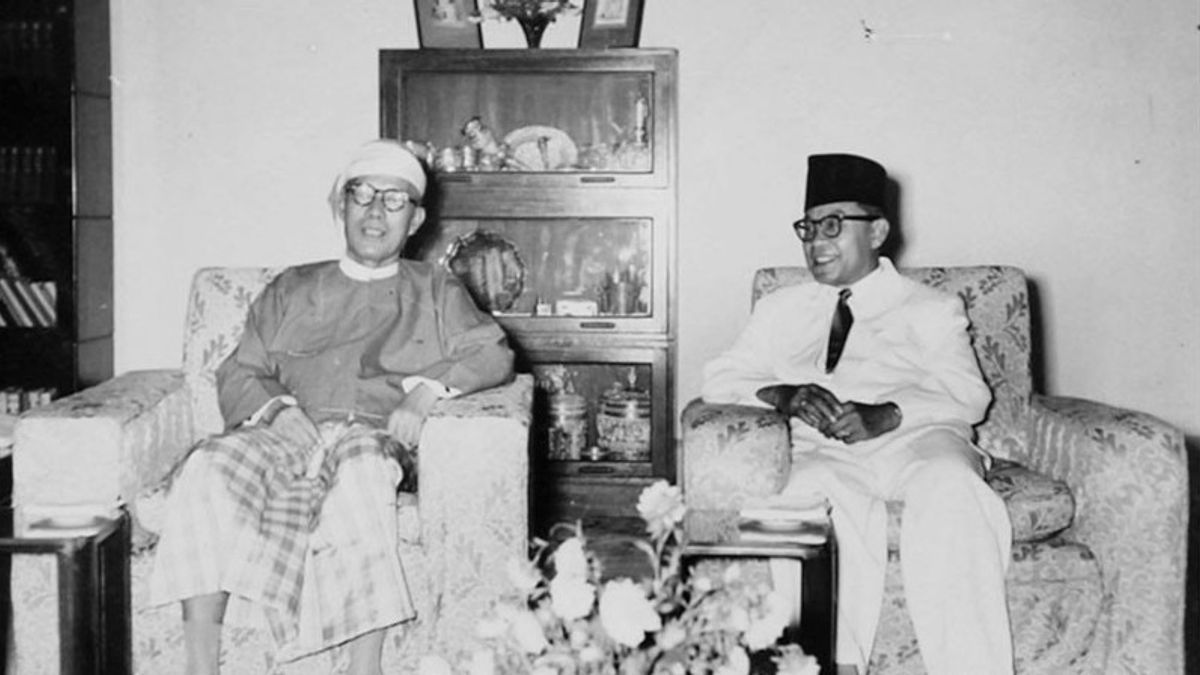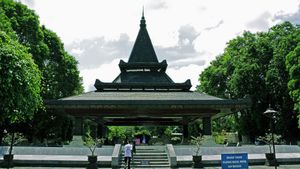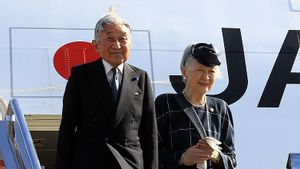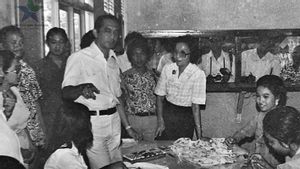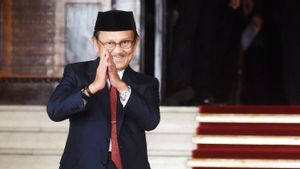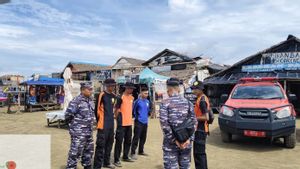JAKARTA - There is no doubt about Mohammad Hatta's closeness to Islam. He was born into a family of businessmen and scholars. This background made him able to balance studying Western education and Islam. As a result Bung Hatta also grew into a figure full of tolerance.
He fully supports the phrase Belief in One Almighty God as the prefix of Pancasila. This means that Bung Hatta respects all religious sects in Indonesia without exception. For him, Indonesia is too big for just one religion.
Family is the main foundation of Bung Hatta knowing Islam. Since childhood, he has been guided to explore the basics of Islam. From the introduction of the Koran, faith, to monotheism. Religious lessons were also perpetuated in many places.
Hatta to look for a religious teacher. Everything was done so that one day Hatta could become a leader who is close to God and responsible. However, Hatta's closeness to religious knowledge did not make other educations forgotten.

The Hatta family also attaches importance to Western education. Western education is perpetuated in the morning. While religious education – reading the Koran and others is carried out after sunset. The move was to balance the knowledge that Hatta had gained. The results had a big impact on Bung Hatta's growth and development.
He grows into a smart person. He knows the meaning of tenacity, honesty, independence, and most importantly tolerance. His sensitivity to diversity tolerance can be seen from the condition of the archipelago, which has a variety of ethnicities and religions.
Bung Hatta understands that Indonesia is religious, not uniform. The narrative corresponds to the values of Bhinneka Tunggal Ika, different but one. That tolerance is the real strength of Indonesia.
As a result, Bung Hatta supported a change in the narrative in the formulation of the nation's basis, Pancasila. Hatta and the clergy support the narrative that Belief in One and Only God is the main one by removing the sentence: with the Obligation to Implement Islamic Shari'a for its adherents.

For him, the omitted sentence is a gift and the greatest tolerance of Muslims towards other religions. Primarily, religious minorities.
“Basic issues of the state and the 1945 Constitution show Muslim tolerance towards other religions. Moh. Hatta even said that the 1945 Constitution is the greatest tolerance of Islamic leaders, especially Ki Bagus Hadikusumo, even though the spirit of the Jakarta Charter has not completely disappeared and is still inherent in Pancasila.
"Finally, in a short time, an agreement was reached to make changes to the text of the 1945 Constitution. Indonesia is still based on belief in God, but 'seven words' was replaced with Belief in One Almighty God. Finally, the obligation to adhere to the religion of Islam for the president was removed,” explained Ridho Al-Hamdi in the book Paradigma Politik Muhammadiyah (2020).
Friends with Ahmadiyya Ulama
Bung Hatta's attitude towards tolerance continues to be practiced in every condition. He repeatedly said Indonesia was too big for one religion. This is because the key to Indonesian sovereignty is community support in the form of a sense of responsibility and tolerance.
An attitude that makes the large group of people (the majority) willing to accept the presence of the smallest group of people (minority). Practices related to tolerance do not only come from Hatta's mouth, Hatta's attitude is the same.
His friendship with the cleric of the Ahmadiyya minority group, Sayyid Shah Muhammad, is an example. The two of them had known each other since the National Capital moved to Yogyakarta during the revolution. The two of them often met and exchanged ideas.
Bung Hatta did not hesitate to ask him about the progress of Ahmadiyya preaching activities throughout the country. Both of them often exchange reading books related to Islam and its development. Bung Hatta did not have a problem with Sayyid being in a minority Muslim group.

This closeness continued until Indonesia's independence. Sayyid often met Bung Hatta. Especially when Bung Hatta lay sick. At that time, Bung Hatta's only entertainment when he was sick was books and Sayyid knew that.
Sayyid then brought books to entertain Bung Hatta. In fact, up to 20 books. From Introduction to the Study of the Holy Quran, Life of the Holy Prophet Muhammad, Message of Ahmadiyah, to Islam and Communism.
Likewise when Sayyid was sick. Hatta will immediately visit him. Sayyid also called Bung Hatta as the true embodiment of Muslims. Someone who is willing to come when he sees his colleagues who are sick to give encouragement. Even friendship between the two is a form of true tolerance.
另请阅读:
"In the realm of social life, Bung Hatta showed his genuineness regarding the understanding of God which is humane in everyday life. Apart from what has been described in the previous section, Bung Hatta also forged a loving relationship with an Ahmadiyah figure, Sayyid Shah Muhammad Al-Jaeni, who was a member of the Committee for the Recovery of the Central Government of the Republic of Indonesia led by Ki Hadjar Dewantara.”
"When the dual Soekarno-Hatta were exiled to Bangka Island, Sayyid sent Hatta books published by the Ahmadiyya Muslim Community. Sayyid also visited Bung Hatta when he was sick and was being treated at Cipto Mangunkusumo Hospital while carrying a number of books, knowing that Bung Hatta loved to read. In 1976, on the other hand, Hatta came to visit when Sayyid had a heart problem and had to be treated at Cipto Mangunkusumo Hospital," said Yudi Latif in the book Mata Air Keteladanan: Pancasila dalam Perbuatan (2014).
The English, Chinese, Japanese, Arabic, and French versions are automatically generated by the AI. So there may still be inaccuracies in translating, please always see Indonesian as our main language. (system supported by DigitalSiber.id)
